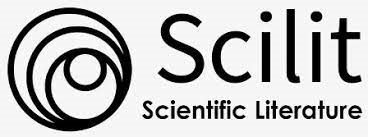Jurnal Manajemen dan Pendidikan Agama Islam
Identitas Jurnal
- Judul Terbitan Jurnal Manajemen dan Pendidikan Agama Islam
- Sub Judul
- Nama Institusi ASOSIASI RISET ILMU PENDIDIKAN AGAMA DAN FILSAFAT INDONESIA (ARIPAFI)
- Jenis Jurnal Penelitian
- Akreditasi Jurnal Nasional Tidak Terakreditasi
- Terbitan 6x Setahun (Januari, Maret, Mei, Juli, September, November)
- Bidang Ilmu Education
- P-ISSN 3031-8416
- E-ISSN 3031-8394
- Biaya APC Rp 150.000
- Artikel Per Tahun 120 Artikel
- Lama Waktu Terbit 10 Hari
- Prosentase Penerimaan 20%
-
Indeksasi





Deskripsi
Jurnal Manajemen dan Pendidikan Agama Islam, with e-ISSN : 3031-8394, p-ISSN : 3031-8416 published by the Association of Indonesian Religious and Philosophical Education. The purpose of publishing this Journal is to focus on the study of management in Islamic Religion and education which includes issues of strategies, methods, media, learning resources, evaluation and assessment in Islamic religious education in the dynamics of learning at various levels (elementary, middle and high) and other issues relevant to the study of Islamic religious education. This journal is published 1 year 4 times (March, June, September and December)
Article indexed DOI
Jurnal Manajemen dan Pendidikan Agama Islam
DOI : 10.61132/jmpai.v3i3.1119 - Volume: 3, Issue: 3, Sitasi : 0
05-May-2025 | Abstrak | PDF File | Resource | Last.06-Aug-2025
DOI : 10.61132/jmpai.v3i3.1117 - Volume: 3, Issue: 3, Sitasi : 0
03-May-2025 | Abstrak | PDF File | Resource | Last.06-Aug-2025
DOI : 10.61132/jmpai.v3i3.1114 - Volume: 3, Issue: 3, Sitasi : 0
02-May-2025 | Abstrak | PDF File | Resource | Last.06-Aug-2025
DOI : 10.61132/jmpai.v2i1.1123 - Volume: 2, Issue: 1, Sitasi : 0
30-Jan-2024 | Abstrak | PDF File | Resource | Last.06-Aug-2025
DOI : 10.61132/jmpai.v2i1.1122 - Volume: 2, Issue: 1, Sitasi : 0
30-Jan-2024 | Abstrak | PDF File | Resource | Last.08-Aug-2025
DOI : 10.61132/jmpai.v3i3.1121 - Volume: 3, Issue: 3, Sitasi : 0
05-May-2025 | Abstrak | PDF File | Resource | Last.06-Aug-2025
DOI : 10.61132/jmpai.v1i6.1109 - Volume: 1, Issue: 6, Sitasi : 0
30-Nov-2023 | Abstrak | PDF File | Resource | Last.08-Aug-2025
DOI : 10.61132/jmpai.v3i2.1013 - Volume: 3, Issue: 2, Sitasi : 0
20-Jan-2025 | Abstrak | PDF File | Resource | Last.08-Aug-2025
DOI : 10.61132/jmpai.v3i1.887 - Volume: 3, Issue: 1, Sitasi : 0
13-Dec-2024 | Abstrak | PDF File | Resource | Last.06-Aug-2025
DOI : 10.61132/jmpai.v3i2.981 - Volume: 3, Issue: 2, Sitasi : 0
09-Jan-2025 | Abstrak | PDF File | Resource | Last.06-Aug-2025
Artikel PerTahun
Artikel PerVolume
Sitasi Per Tahun
Tahun 2025, Volume.3, Issue.3 (15)
Tahun 2025, Volume.3, Issue.2 (14)
Tahun 2024, Volume.3, Issue.2 (1)
Tahun 2024, Volume.3, Issue.1 (12)
Tahun 2024, Volume.2, Issue.6 (4)
Tahun 2024, Volume.2, Issue.5 (10)
Tahun 2024, Volume.2, Issue.4 (10)
Tahun 2024, Volume.2, Issue.3 (11)
Tahun 2024, Volume.2, Issue.2 (14)
Tahun 2024, Volume.2, Issue.1 (7)
Tahun 2023, Volume.1, Issue.6 (5)
